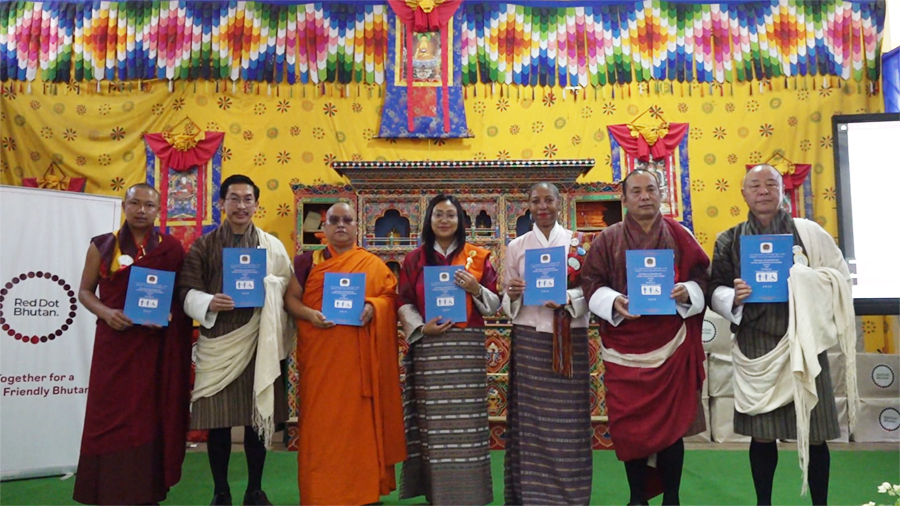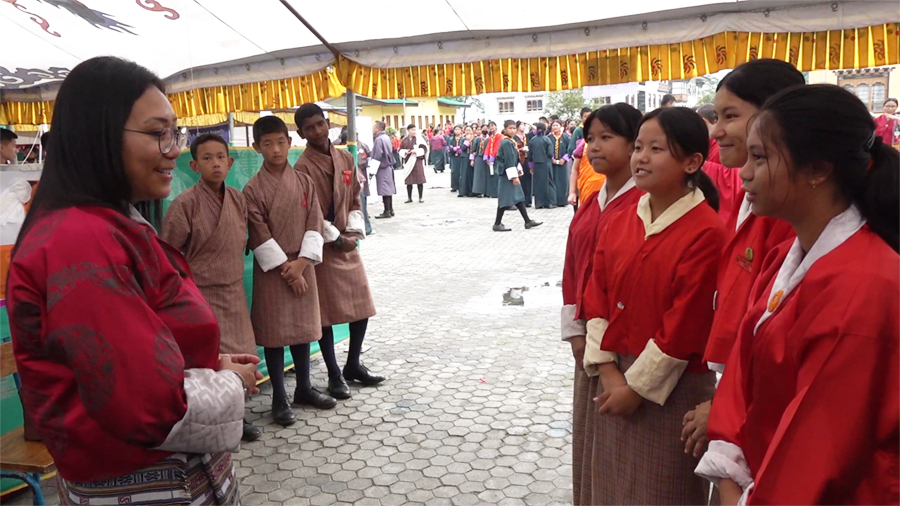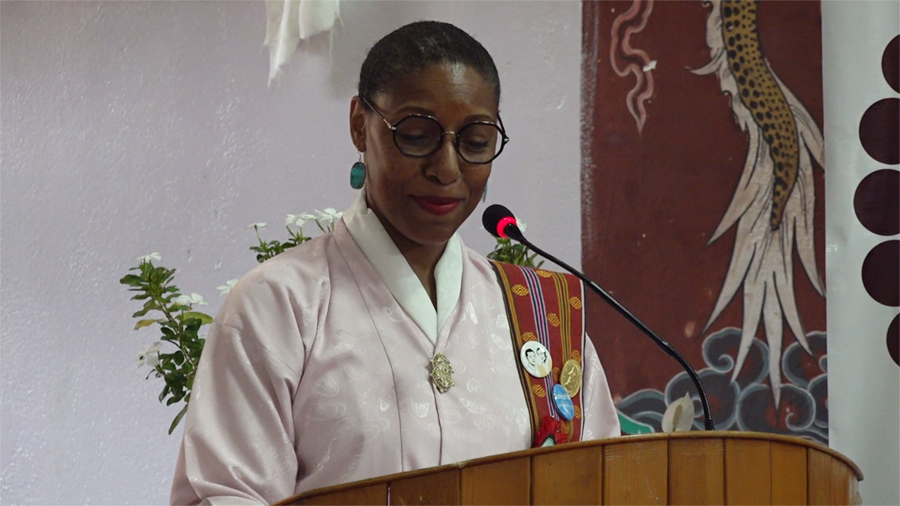
Menstrual Hygiene Day is celebrated every year on the 28th of May. As the day was observed in Samtse today, it was revealed that over 60 per cent of schools in the country now have facilities for disposing of menstrual waste. According to the education and skills development minister, this is a significant improvement compared to a few years ago when such facilities were almost nonexistent.
E ducation Minister Yeezang De Thapa said that in the past, a lack of sanitary pad disposal facilities in schools compelled menstruating girls to take leave.
ducation Minister Yeezang De Thapa said that in the past, a lack of sanitary pad disposal facilities in schools compelled menstruating girls to take leave.
However, highlighting the progress made in recent years, the minister said that Bhutan is now making considerable progress in improving menstrual hygiene management.
“Today, 63 per cent of our schools have disposal mechanisms for menstrual hygiene waste, 41 per cent have covered disposal bins, and 46 per cent have changing rooms for menstrual hygiene management. These achievements are largely attributed to the Red Dot Bhutan, an advocacy platform dedicated to raising awareness about menstrual hygiene management under the Royal Patronage of Her Royal Highness Princess Eeuphelma Choden Wangchuck.”
 During the event, the National Standards for Water, Sanitation, and Hygiene (WASH) was also launched for schools and monastic institutions.
During the event, the National Standards for Water, Sanitation, and Hygiene (WASH) was also launched for schools and monastic institutions.
“Together with Menstrual Hygiene Day, today we celebrate a decade of progress made towards menstrual hygiene management and a decade of Red Dot Bhutan. We just marked a milestone with the launch of the national standards for WASH in schools and monastic institutions, setting the bar to standardise all WASH services across schools and institutions. These achievements are significant not only in the areas of Water, Sanitation, and Hygiene but also in education, health, and other social aspects of life,” said Andrea James, UNICEF Bhutan Representative.
Menstrual Hygiene Day aims to break the silence, raise awareness, and change the negative social norms surrounding menstruation.
However, stigma related to menstruation remains a challenge in some Bhutanese communities, impacting the mental health and school attendance of adolescent girls.
“Before experiencing my first period, I relied on second-hand information from friends and older cousins. Despite this, I was not fully prepared for the reality of menstruation. One of the biggest challenges was overcoming the stigma and taboo surrounding menstruation,” said Yeshi Tshojung Dema, a student of Norboogang CS.
“At home, discussions about menstruation were initially unfamiliar and perhaps slightly awkward. However, over time, I have come to know that menstruation is a natural biological process that many girls and women undergo every month,” said Srijan Adhikari, another student of Norboogang CS.
As part of the event, sanitary napkins were distributed to various schools and nunneries in Samtse.
The Samtse Lam Neten and the president of the Pandit Committee addressed the myths and stigma associated with menstruation within religious contexts.
Similarly, in Phuentshogling, various stakeholders gathered to celebrate the day with students from the Phuentshogling Thromde.
A Khenpo from a local monastic institution said that menstruation is a natural phenomenon and urged people to discard myths such as the need for women to refrain from religious activities during their periods. He added that cleanliness is what’s important.
Passang Dorji & Kinley Dem
Edited by Sonam Pem









